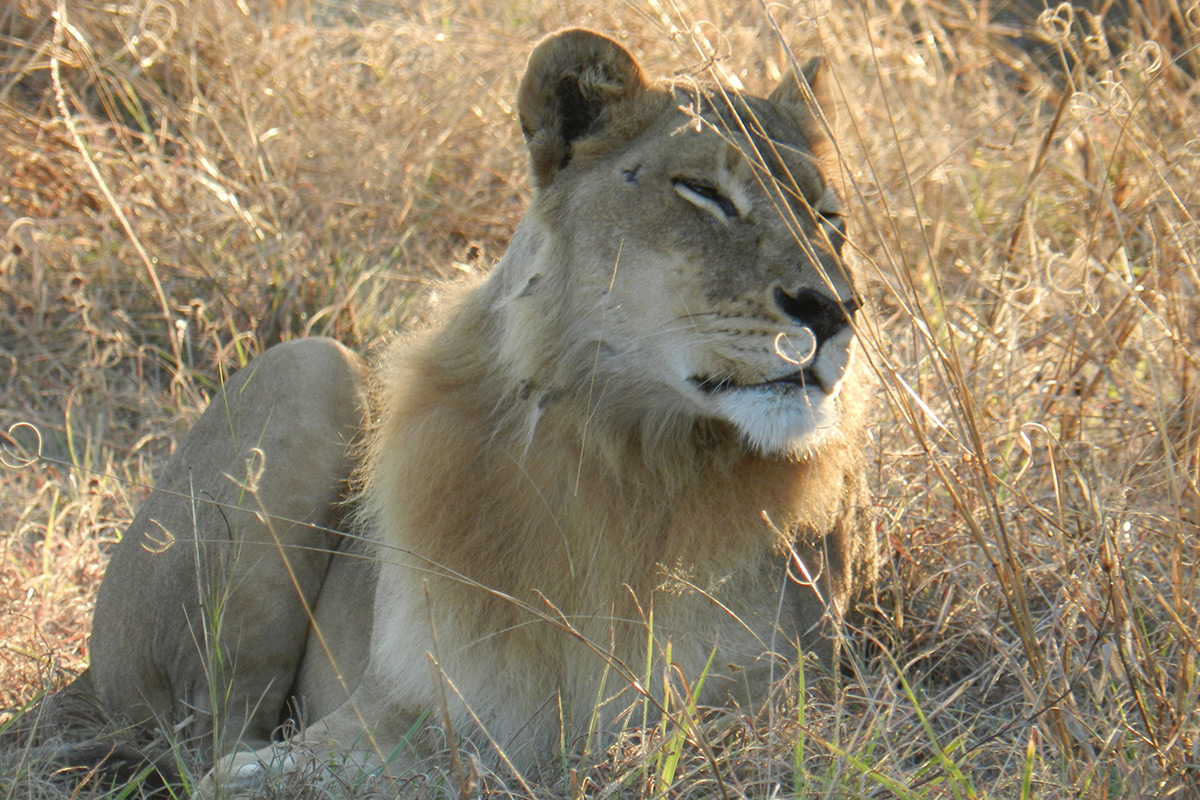 This lion king (pictured above) is a queen. And she’s not the only one
This lion king (pictured above) is a queen. And she’s not the only one
Five lionesses in Botswana have grown a mane and are showing male-like behaviours. One is even roaring and mounting other females.
Male lions are distinguished by their mane, which they use to attract females, and they roar to protect their territory or call upon members of their pride. Females lack a mane and are not as vocal.
But sometimes lionesses grow a mane and even behave a bit like males. However, until now, reports of such maned lionesses have been extremely rare and largely anecdotal. We knew they existed, but little about how they behave.
Now, Geoffrey D. Gilfillan at the University of Sussex in Falmer, UK, and colleagues have reported five lionesses sporting a mane at the Moremi Game Reserve in Botswana’s Okavango delta.
Gilfillan started studying these lionesses back in March 2014, and for the next two years he focused on recording the behaviour of one of them, called SaF05. She had an underdeveloped mane and was larger than most females.
“While SaF05 is mostly female in her behaviour – staying with the pride, mating males – she also has some male behaviours, such as increased scent-marking and roaring, as well as mounting other females,” says Gilfillan.
“Although females do roar and scent-mark like males, they usually do so less frequently,” he says. “SaF05, however, was much more male-like in her behaviour, regularly scent-marking and roaring.”

Jessica Vitale
A likely explanation is an increased level of testosterone as these lionesses mature, says Luke Hunter, president and chief conservation officer at the global wild cat conservation organisation Panthera.
In lions, testosterone directly affects the development of manes. Castrated males, for example, lose their ability to produce testosterone and promptly lose their mane, too.
In 2011, a captive lioness called Emma at the National Zoological Gardens of South Africa developed a mane. Tests revealed high levels of testosterone due to a problem in her ovaries, and once they were removed she reverted to a typical lioness.
The idea that testosterone is implicated in the Botswana lionesses is also backed by observations of their reproductive success, says Kathleen Alexander at Virginia Tech in Blacksburg.
“While some of the maned lionesses were observed mating, none of them became pregnant, suggesting they are infertile, a known consequence of high levels of androgens such as testosterone in females,” she says. “The behavioural changes suggest this is likely the case.”
Hunter suspects this explanation applies to the animals studied by Gilfillan and his colleagues. “Given all five known maned females come from the Okavango region, there must be a genetic component in this population underlying the phenomenon,” he says.
“I don’t think this is anything to be concerned about,” says Hunter. “Although the females are apparently infertile, they otherwise appear to live long, healthy lives. And from a conservation perspective, there is nothing to suggest the pattern is increasing or will ever be anything more than a rare, local phenomenon.”
No one seems to be studying the exact genetic and hormonal causes of this phenomenon at the moment. “I guess there are just one or a few genes altered,” says Vincent Savolainen at Imperial College London, who had a student briefly work on the possible causes. “I believe some masculinised genes have been documented in domesticated cats – it would be good to look into this, especially given that the cat genome is available as reference.”
Could the masculinised females in fact be a boon to the pride when it comes to competing with other prides? It’s possible, it seems.
Gilfillan says he once saw SaF05 bring down a zebra. “A neighbouring pride stole the zebra from SaF05, but in return SaF05 killed two of their cubs.”
Cub-killing behaviour is rare in females but common in males.
No comments:
Post a Comment